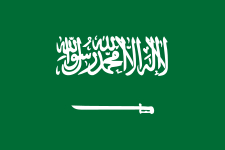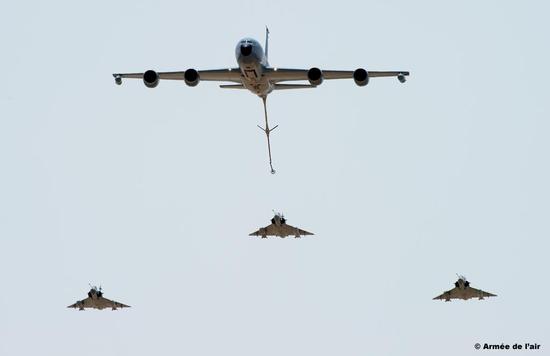Bob's lesson, what should we learn from it?

(BRUSSELS2) Bob Gates' analysis and criticism of NATO and the allies (read here) are quite correct. But they are slightly incomplete... if I may say so.
Afghanistan: a war waged according to the impetus Us
The war in Afghanistan was effectively fought, especially by the Americans. But the latter carried it out as they pleased, according to their strategy, and their rhythm, caring little for the views (and warnings) of their allies. The Europeans have lent a hand, despite everything, often with reluctance, by multiplying the caveats. This investment has, despite everything, cost dearly to the European armies which are now exhausted from this commitment. Exhausted in terms of equipment, even if they have benefited tactically, exhausted politically, especially in relation to their public opinion. Moreover, Afghanistan today acts as a scarecrow to avoid new commitments. And the Americans persist in the error by advocating a very slow disengagement. Robert Gates would be, then, a bit of an arsonist who would complain that the firefighters did not come to his rescue quickly enough.
The American baby bottle on the continent
Even outside the operation, the Americans did everything yesterday to “bottleneck” the Europeans. The presence of numerous forces, even today, in Europe bears witness to this. The existence of a program aimed at promoting investment in US equipment at a lower cost has also developed a habituation behavior to various US aids, similar to that of a drug addict. The American officials also did not fail to lend a hand to their industrialists to break any desire for industrial autonomy on the part of the Europeans. Which frankly did not help the Europeans to invest. Even today, by deploying - and imposing - an anti-missile shield made in the US, they perpetuate this idea that there is no point in investing in defense since the Americans were there.
US seeks more active European partner
Today, it is a fact, the United States is asking for a more active, more enterprising Europe, which ensures not only its own security but the security of the countries neighboring its borders. It's quite recent. George Bush during his last appearance on the continent at the NATO summit in Bucharest in 2008 set the tone. No doubt the Europeans did not pay all their attention to this new "sound", coming from Washington. In fact, today there are no more objective allies in the construction of the common European home than the United States. Some leaders of the continent should take the seed.
States that have become quasi-neutral
On the European side, the ranks of the "capable" are thinning. Apart from Afghanistan, some Europeans with significant armed forces - the Netherlands, Germany, Poland - have in fact become almost neutral countries in the intervention, both for political and budgetary reasons. While others are reduced to play the utilities - Italy, Spain, Greece... - or have become totally non-existent - Romania, Bulgaria, Portugal... -, financial difficulties oblige.
The budget crisis, opportunity or first-class burial
It is often said that the budget crisis can be a great opportunity. This is not wrong provided you do it intelligently. However, currently, the restructuring of the armies carried out by each European country seems, for the moment, carried out in dispersed order, in the "save who can" genre... "Pooling and sharing" is more of a good word than a reality, each seeking, in fact, to make the other take on the tasks that he no longer wants to assume. And no one thinks of telling his neighbors of the projects he has with others. A coordination of restructurings and cuts must be assumed, and quickly, to prevent the appearance or increase of "voids" and other shortcomings which are so many breaches in our ability to respond.
A political empire
Robert Gates' warning, however biased and partial, should therefore not be taken lightly by European leaders, shrugging their shoulders as usual. It is important to react, as an adult, in a responsible and coordinated way. Both at the level of NATO and the European Union, it is important that Europe take charge of its defense a little more, and stop behaving like a spoiled and careless child. Responsibilities must be taken at the highest level. And if possible with a bit of democratic debate. A White Paper, a parliamentary commission of inquiry, a European council devoted to this subject thus appear as a minimum. But it will then quickly move on to practical exercises.
A necessary reorganization
Political, strategic, industrial and institutional rearrangements must be carried out quickly. Even if the price may seem painful.
On the equipment side, should we invest only in the technological whole or have more basic equipment, but operational, immediately, and less expensive? On the industry side, should we keep three, four, five companies that do roughly the same thing, and compete with each other, and in the world? Should we keep large military bases in each country? On the personal side, should the military continue to perform undue tasks, such as "anti-terrorist" patrols in stations, whose effectiveness is more than doubtful. And should we continue to mobilize a few dozen men and women just to make a parade during the displacement of three general officers? On the forces side, should we keep fighter jets dispersed or should we not have four to five bases, well placed on European territory.... In short! how to do less with better.
On the institutional side, is it time for NATO and the EU to get away with trying to duplicate what the other does better? When will we realize that a small civil-military HQ on a European scale would be more profitable than half a dozen barely operational national HQs? How long will the High Representative of the EU consider that defense is not her cup of tea and not her priority while the European Parliament is content with a "sub-committee" for defence? Etc.
Thanks Bob!
These are just small examples. Everyone at their level must react and quickly. Robert Gates is right to sound the alarm. Leaders with strong European flair - as Clinton or Bush might have had - are a thing of the past. The US sees Asia more as a land to invest than Europe. But the threats at our borders are not theory...




Thanks for this very thorough article.
indeed, one can wonder if the model of the ultra-technological army, pushed by the industrialists, is viable. do we need futuristic fighters to attack pickups? and no one talks about the comparative price. I'm not sure that our victories, each missile fired does not lead us to ruin
all this is very flashy, without reservations, brilliant but very fragile technologically. would we be able to intervene in this way against russia to defend a country in eastern europe? with just a few weeks of ammo, I doubt it
a fine example also of the uselessness of these ubiquitous patrols of soldiers in the rer, the metro... only serving to create an ultra-safe atmosphere
but honestly, what leader would have the courage to close military bases and think “European”? not to mention shutting down competing industries in europe!
not sarko in any case, superseller of the nuclear-military lobbies, from russia to brazil
Excellent summary, in my eyes… The situation is not new, of course… But Gates, with the well-known “delicacy” of our American Friends, but also their brutal pragmatism, has, rightly, “put his two big feet in the dish”
Lebougnat.